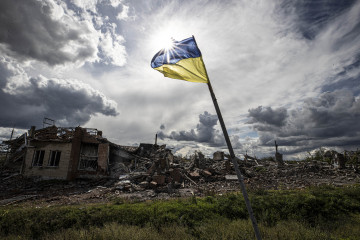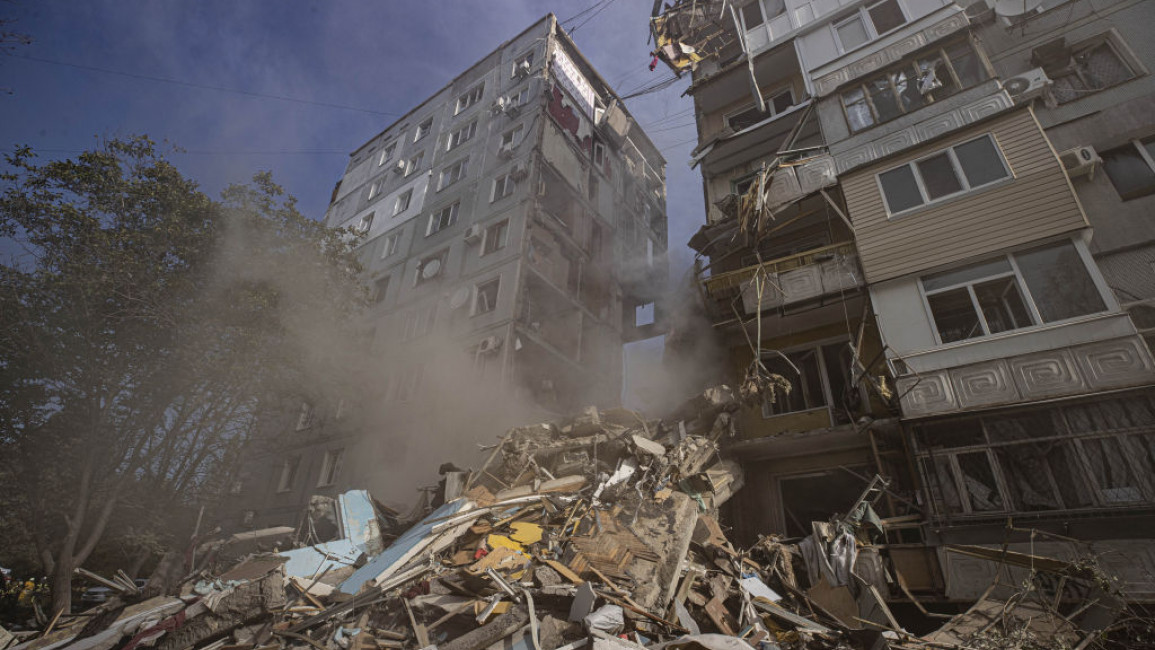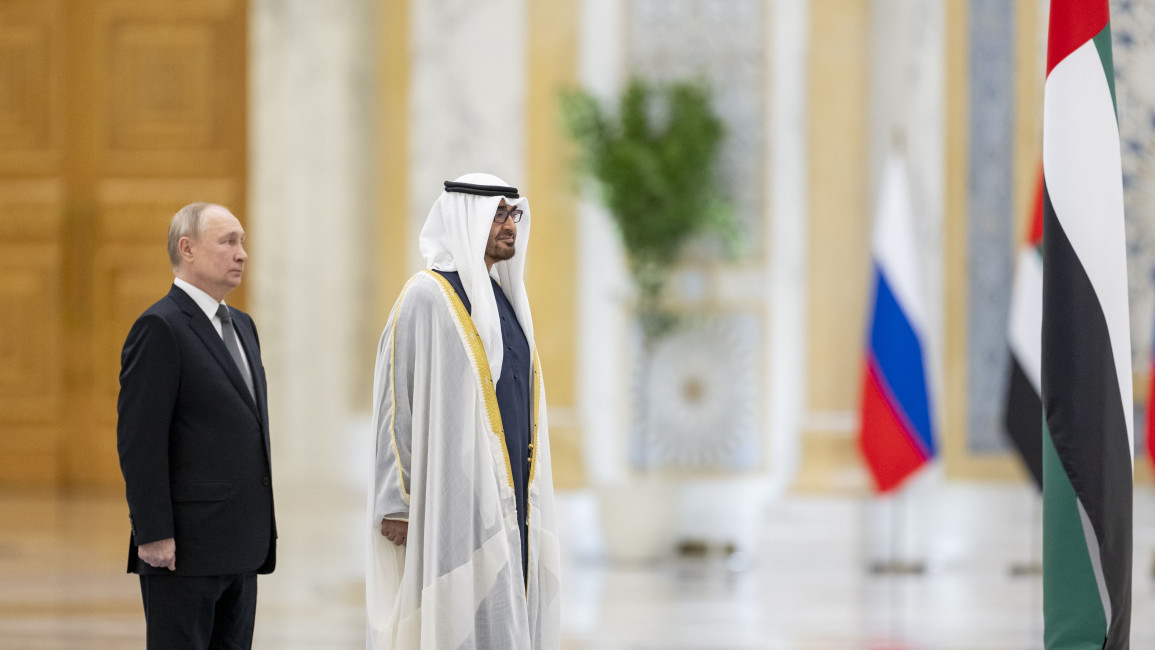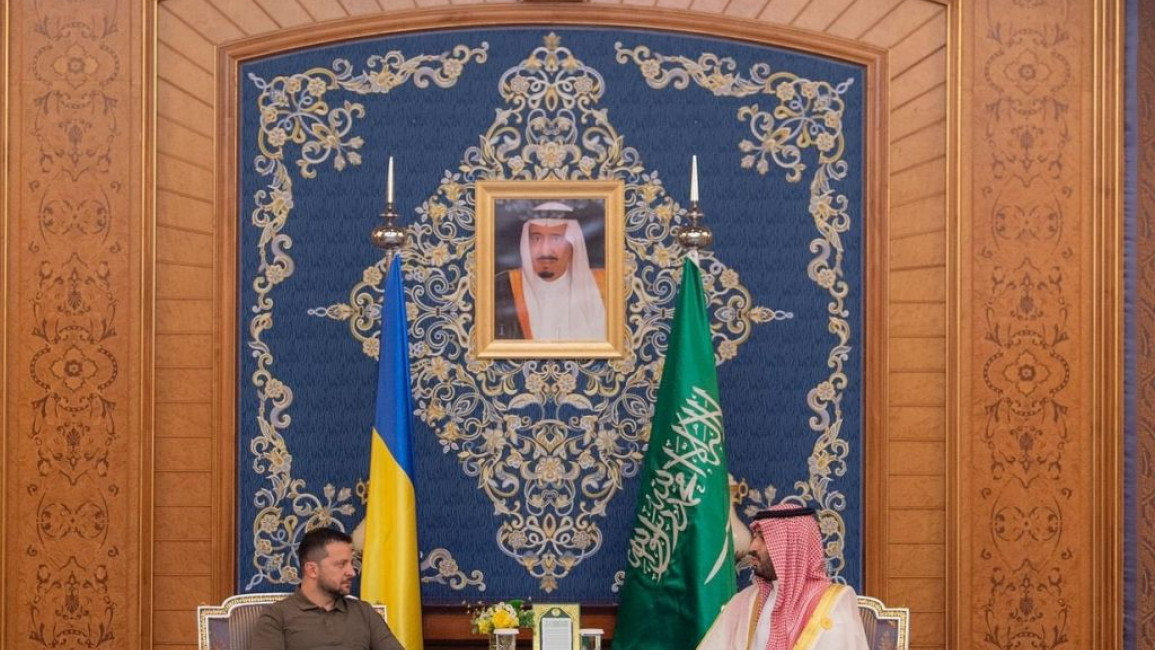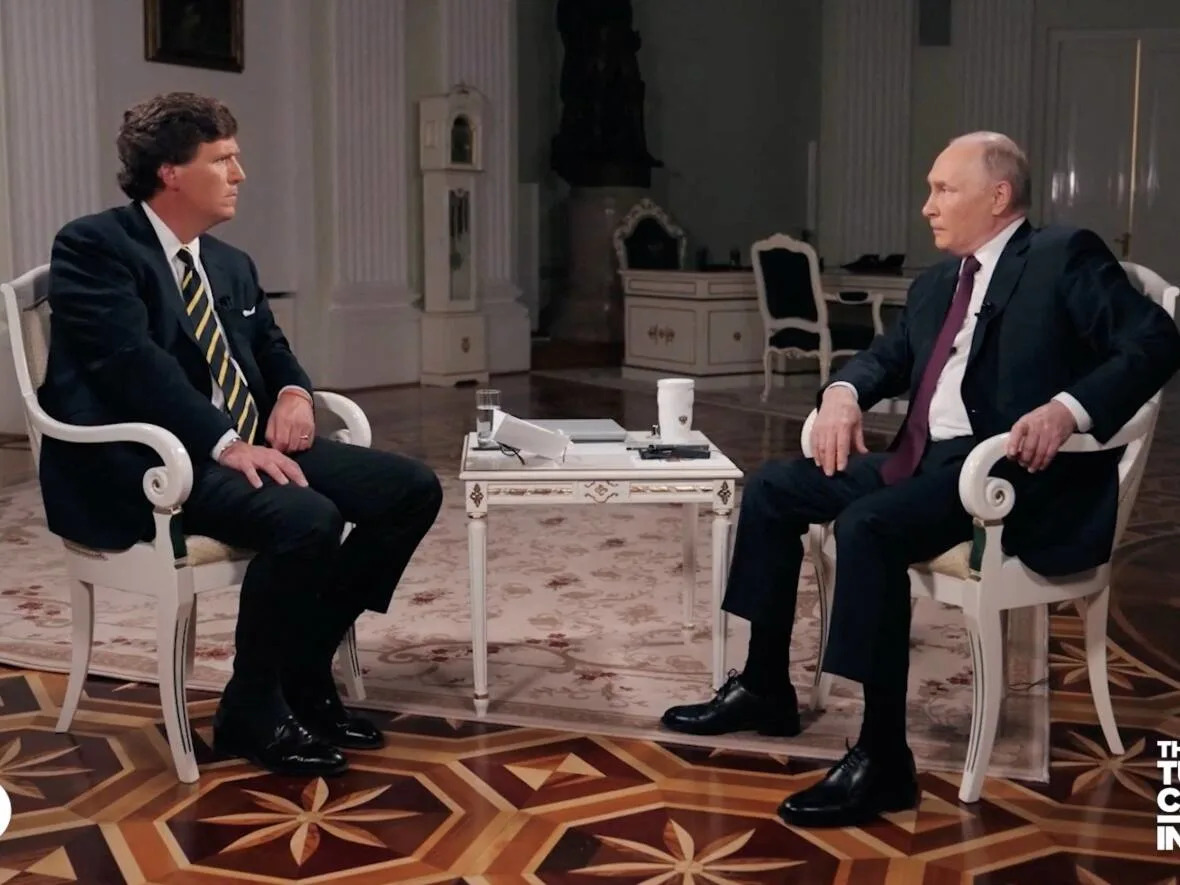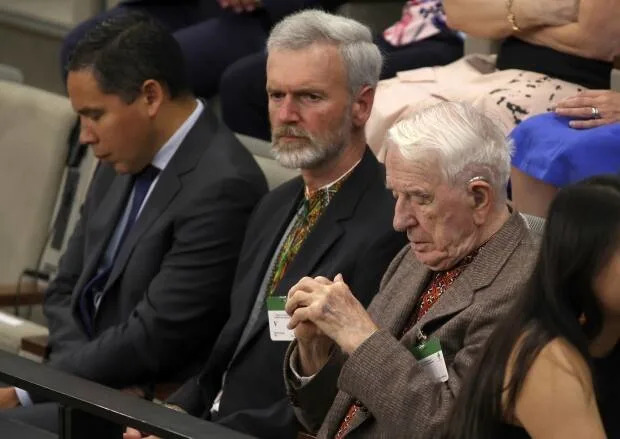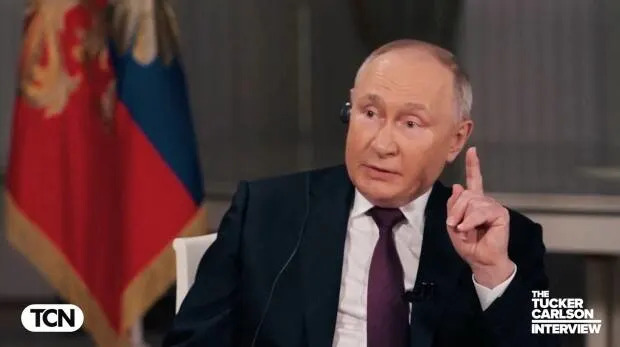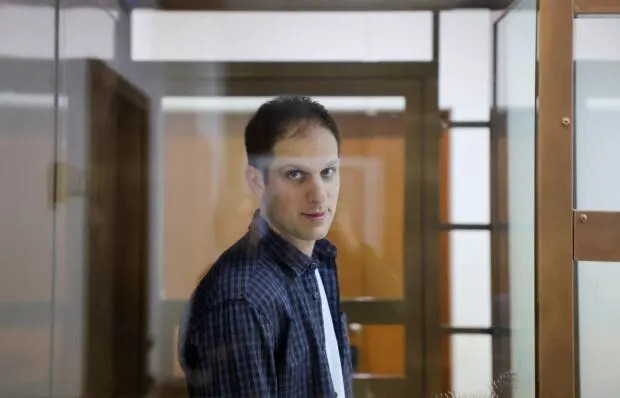Russia on Tuesday freed a US national imprisoned on drug charges following a visit by Steve Witkoff, US President Donald Trump's Middle East envoy. The White House described Marc Fogel's release as "an exchange" without giving further details.
Issued on: 11/02/2025
By: NEWS WIRES

Moscow on Tuesday freed an American prisoner after the first-known visit by a member of President Donald Trump's administration to Russia, in a deal the White House called a positive sign for ending the Ukraine war.
The White House said Trump secured the release of Marc Fogel, an American jailed since 2021 on drug charges, as part of an "exchange," without offering further details.
Steve Witkoff, a property developer and friend of Trump who serves as his Middle East envoy, held talks and was "leaving Russian airspace" with Fogel, the White House said.
The US envoy in charge of hostages, Adam Boehler, later posted a picture of Vogel that appeared to show him savoring a stiff drink on a jet home, his other hand clasping both his passport and a plate of food.
"President Trump, Steve Witkoff and the President's advisors negotiated an exchange that serves as a show of good faith from the Russians and a sign we are moving in the right direction to end the brutal and terrible war in Ukraine," US National Security Advisor Mike Waltz said in a statement.
There was no immediate comment from Russia, where state-run news agencies quoted the White House announcement.
Russia's Supreme Court in December refused to consider an appeal Fogel made against his 14-year sentence.
Witkoff, who earlier played a key role in pushing forward a fragile Israel-Hamas ceasefire, would be the first senior US official known to have traveled to Russia in recent years.
Former president Joe Biden shut off most contact, although intelligence chiefs and others still met quietly in third countries, after Russia invaded Ukraine in February 2022.
Ahead of Ukraine talks
The announcement on Fogel came hours after Trump announced a visit to Ukraine by Treasury Secretary Scott Bessent -- another official in his cabinet on a mission unrelated to his primary job.
Bessent will meet Ukrainian President Volodymyr Zelensky, who is also seeing US Vice President JD Vance on Friday at the Munich Security Conference.
Trump took office vowing to end the war in Ukraine, possibly by leveraging billions of dollars in US assistance sent by Biden, to force Kyiv into territorial concessions.
Trump in a Fox News interview aired Monday floated that Ukraine "may be Russian someday," words quickly welcomed by Moscow.
"The fact that a significant part of Ukraine wants to become Russia, and has already, is a fact," Kremlin spokesman Dmitry Peskov said, referring to Moscow's 2022 annexation of four Ukrainian regions after referendums widely criticized internationally as fraudulent.
 04:32
04:32Ukrainians reacted with scorn to Trump's remarks, with some questioning the Republican mogul's grasp of the situation.
"It is some kind of senile insanity," Kyiv resident Daniil told AFP.
A Ukrainian soldier on a street in central Kyiv, who only gave the name Mykola, said of Trump: "He can think anything and say anything, but Ukraine will never be Russia."
Trump in the past has voiced admiration for Putin and notoriously backed his denial of the US intelligence community's finding of Russian interference in the Republican's 2016 election victory.
But Trump in recent weeks has also called on Russia to compromise, saying that Putin needs to cut heavy losses both in personnel and costs.
Both armies are trying to secure an advantage on the battlefield ahead of possible talks.
Russia's defence ministry said Tuesday its troops had captured the small village of Yasenove in Ukraine's eastern Donetsk region.
Overnight the two sides also traded long-range attacks on each other's energy infrastructure. Ukraine's General Staff said its forces had struck an oil refinery in Russia's Saratov region, sparking a fire.
In Ukraine's northern Sumy region, regional prosecutors said that afternoon Russian bombing killed a 40-year-old man and a 30-year-old woman.
Considered wrongfully detained
Biden, despite his refusal to engage with Putin since the invasion, negotiated through aides swaps that freed the most prominent Americans jailed by Russia – basketball player Britney Griner, journalist Evan Gershkovich and former Marine Paul Whelan.
Among the Russians released in return were Viktor Bout, an arms deal convicted of funneling weapons around the world until his 2008 arrest in Thailand.
Fogel, 63, was teaching at the Anglo-American School in Moscow when he was arrested in August 2021 over 21 grams of cannabis and cannabis oil allegedly found with him at the Moscow airport.

A Pennsylvania native, Fogel has taught English overseas for more than 25 years and had been living in Russia since 2012. He was reported to have been teaching English to Russians at his penal colony.
His family voiced regret that he was not part of previous prisoner swaps. Jake Sullivan, the national security advisor under Biden, in August said for the first time that the United States considered him "wrongfully detained."
(AFP)







